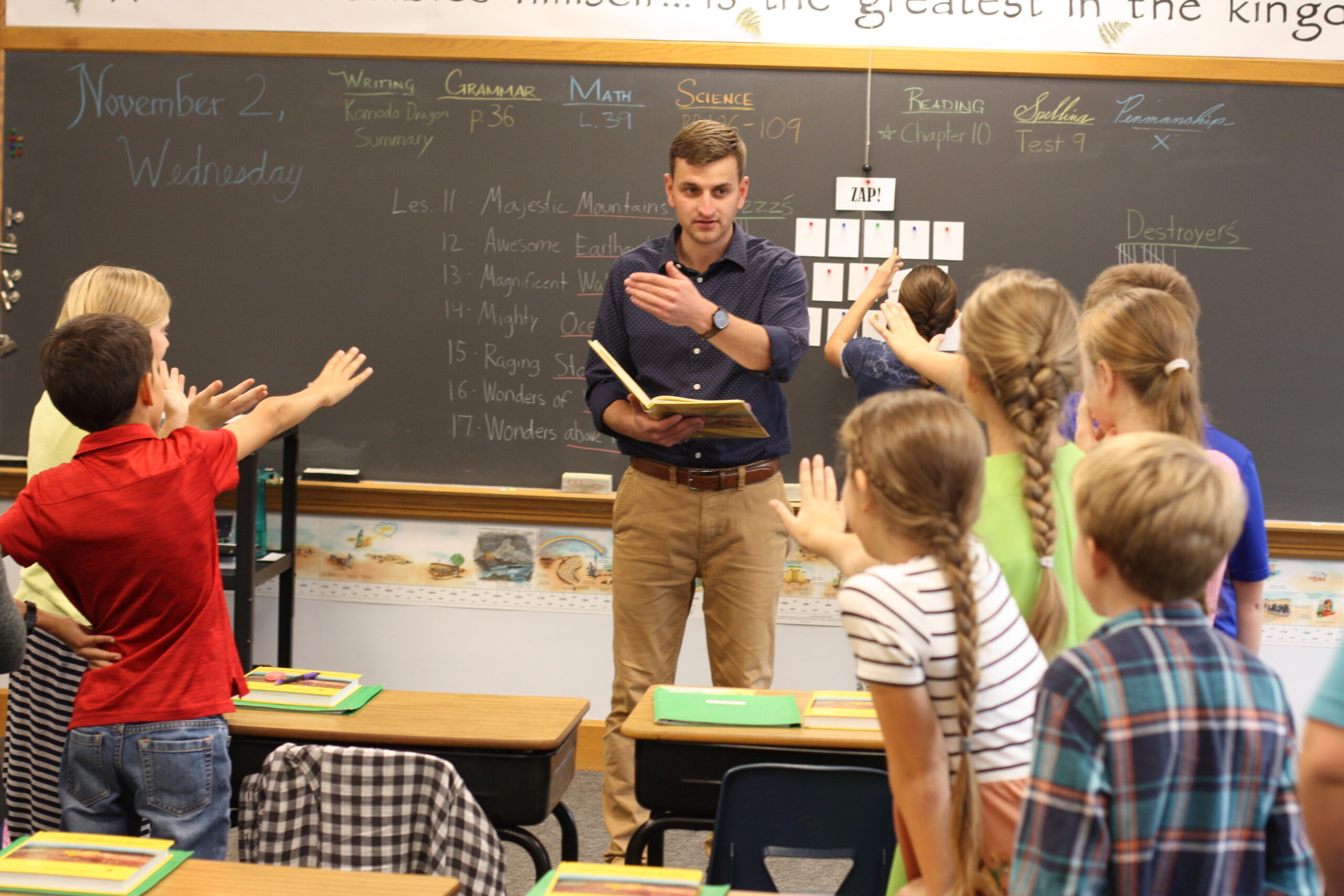A Beginner’s Myths, Part Two

We continue our look at a few of myths teachers can buy in to.
Myth: Last year we could… I’ve seen unsure beginning teachers fall into the trap of allowing students to dictate how the classroom should be run. Students will say, “We’ve always been able to do…” or “Other years we got to…”. Most times these comments are to the advantage of the student. But just because a student says it, doesn’t necessarily mean it was so. Students rarely see the big picture. For them, “always” may really have been not often. They also do not see the times the teacher realizes that what is happening is not what she wants to see. If a student challenges your method of classroom management because “that’s not how we do it” or wonders when you will go on a hike because “they always go in October”; don’t make decisions you are unsure of until you’ve checked further. The students may have a valid point, but they may not. If you aren’t sure, a good response is “I’ll check into it.”
A real-life example that I witnessed some years back: Our school policy manual states that students should walk quietly in single file when in the hall as a group. We had several years of loose structure in the junior high classroom and this procedure was not followed as it should have been. Then we got a new teacher. In their ignorance, they allowed the students to persuade them that the junior high didn’t have to follow that procedure since they “never” did before. Thankfully, the teacher realized their mistake and let the students know that the procedure was for everyone.
Myth: Last year’s teacher didn’t do a good job teaching the material, or it must be that I’ve been handed a group of slow learners. That may be correct. However, it is more likely that students are just rusty after several months of vacation. Second and third graders, especially, can find a new school year challenging. Be prepared to spend the first couple of weeks reviewing. Within a few weeks, everyone should be back where you want them to be.
Myth: School should be fun. A statement from the student teachers’ goals for teaching said, “I would want to make school fun for the students.” School should be interesting and enjoyable—school is not meant to be fun. If school is to prepare students for life, it should mimic life. Life is made up of struggle, hard-work, decision making, service, and daily monotony. A redeemed life well-lived is joyful, not pleasure-filled. School should be interesting—help students find interest in Bible truths, intricate math and science designs, the stories of history, and the enjoyment of poetry or prose. Projects and experiences help build interest. Students will find enjoyment in hard work and accomplishment. Teachers do not need to constantly provide parties, treasure chests, and extra recesses to make school fun. Too much of a “good” thing turns it sour. Student mentality easily slips into entitlement. Does that mean that a teacher should never treat her students? No, a few treats to look forward to can be a good thing. Doing a few special things in the midst of February’s winter days can brighten the atmosphere. But all the fun things in the world will not bring the satisfaction that successfully working through the struggle and hard tasks of the school year can. We should not do fun things for the sake of fun things lest “…in the last days…men shall be lovers of their own selves…lovers of pleasures more than lovers of God” (2 Timothy 3:1-2, 4).
Myth: The teacher’s worth is determined by how her students feel about her. It is easy to gauge our worth as a teacher by how well liked we are by the students and how much praise comes from the parents. A “you’re the best teacher ever” or “our children are enjoying school more this year than ever” comment can send us soaring to Cloud Nine. And three months later “you never let us do anything fun” and “why are you so hard on Johnny for whispering” from the same lips can send us into despair. Our worth is not determined by what our students think of us. Our worth is determined by what God thinks of us.
If our goal is to please God, we can rise above the complements and critiques. That is not to say that complements and criticism have no place in how we evaluate our teaching. It is well to consider what others have to say about us. But a teacher cannot stay the course if they are only trying to stay on the good side of the students.
Blessed is the teacher who can discuss ideas and frustrations with an experienced mentor. If one has never taught before, stepping into the teacher shoes carries with it a lot of uncertainties and questions. Being able to ask someone with experience is very valuable.
Leave a Reply